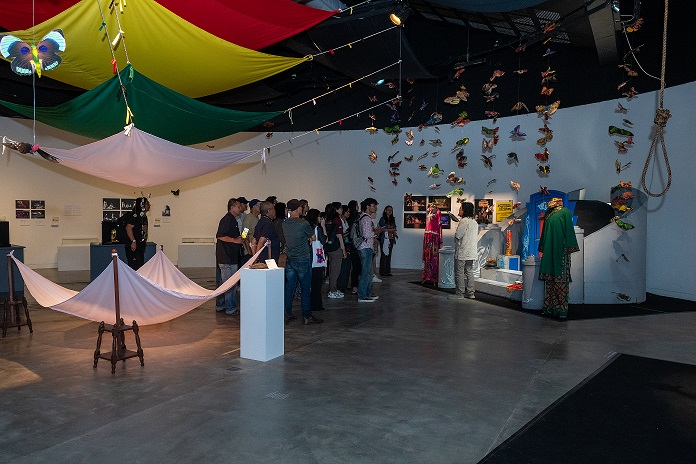What does Jakarta need to do in order to be recognised as a cultural city? In this opinion series, NOW! Jakarta hears from the leaders of the city’s artistic institutions to gain insight into fostering and developing specific areas of culture. Ayu Utami of Salihara Art Centre talks to us about art communities and festivals.

When one speaks of contemporary Indonesian literature, it is impossible not to mention Ayu Utami. A journalist-turned-novelist, activist and the Literature Curator for Jakarta’s Salihara Art Centre, Ayu’s works have revolutionised the nation’s literature scene, especially for women. Her first novel, Saman, published in 1998, was highly acclaimed by literary critics and broke boundaries, especially in the age of Reformation. With accolades like the Prince Claus Award (2000) and the Ahmad Barkie Award (2018), Ayu remains steadfast in her commitment to elevate the nation’s cultural discourse. This time, she sat down with NOW!Jakarta to share her insights about what can be done to raise Jakarta’s cultural profile.
“Jakarta offers the most choices,” she begins, “especially in the arts. It’s pluralistic, with no single ethnicity dominating the other, and that’s what makes it distinctive.” With a metropolitan approach that bridges both the traditional and modern, Jakarta thrives on heterogeneity. “It is a modern cultural city, where Betawi, Javanese, Minang, Batak, and countless other cultures interact. All kinds of people with different and sometimes contrasting perspectives and beliefs live in this jam-packed city– it creates a tension and dynamic interplay that’s hard to replicate elsewhere.”

Ayu believes that Jakarta’s identity as a city of culture is a mosaic of Betawi roots, urban innovation and creative experimentation. It results in its thriving art scene through festivals like Salihara’s SIPFest and Literature and Ideas Festival to the Indonesian Dance Festival and local Betawi celebrations.
“I think a city needs to have art festivals to be called a city of culture, because it needs a thriving and living cultural scene.” Institutions like Salihara and the Jakarta Arts Council have stepped in to fill this void, driven by individuals and communities drawn together by their artistic pursuits. These are the foundations of the city’s identity, a bulwark against the waves of globalisation that pour over Jakarta through new and homogenous developments.

When it comes to Salihara, Ayu explains that as an art centre, it thrives on the philosophy of creating art for the sake of passion and intellectual fulfilment. Since its establishment, Salihara has become synonymous with Jakarta’s modern artistic landscape, particularly through its flagship festivals. The biennial Salihara International Performing Arts Festival (SIPFest) and the Literature and Ideas Festival serve as keystones in the city’s artistic calendar. These festivals feature diverse programs from performances, workshops, literary events, and offer city residents and visitors a glimpse into both local and global art trends. They also provide a platform for modern artists to shine, cementing Jakarta’s position as a city of contemporary culture, not just a repository of history.
Still, Jakarta’s cultural future hangs in a precarious balance. Unlike European cities, where cultural funding flows from a triad of central, local, and private sources, Jakarta struggles with inconsistent government support, with cultural ambitions dictated by political whims. “Festivals already running must be supported for the long term,” Ayu insists, “and support from the local government must be consistent and not depending on who runs the administration. There needs to be consistency and commitment, especially when it comes to support for the Jakarta Art Council.” To truly elevate its status as a cultural city, Jakarta must establish sustainable, independent funding structures. Until then, the city’s cultural scene thrives on the resilience of its artists and their communities.
salihara.org | IG: @bilangan.fu
Read more in the series: Why Jakarta Needs….
Art Communities, with Ayu Utami | Cultural Collaboration, with Bambang Prihadi | Contemporary Art, with Venus Lau | Music, with Nathania Karina | Literature, with Laura Prinsloo





